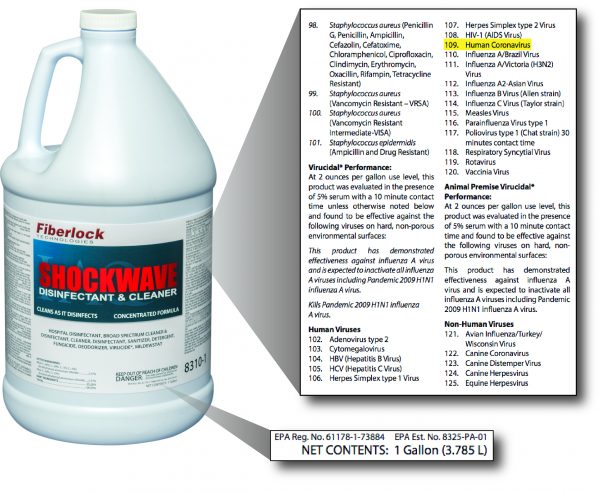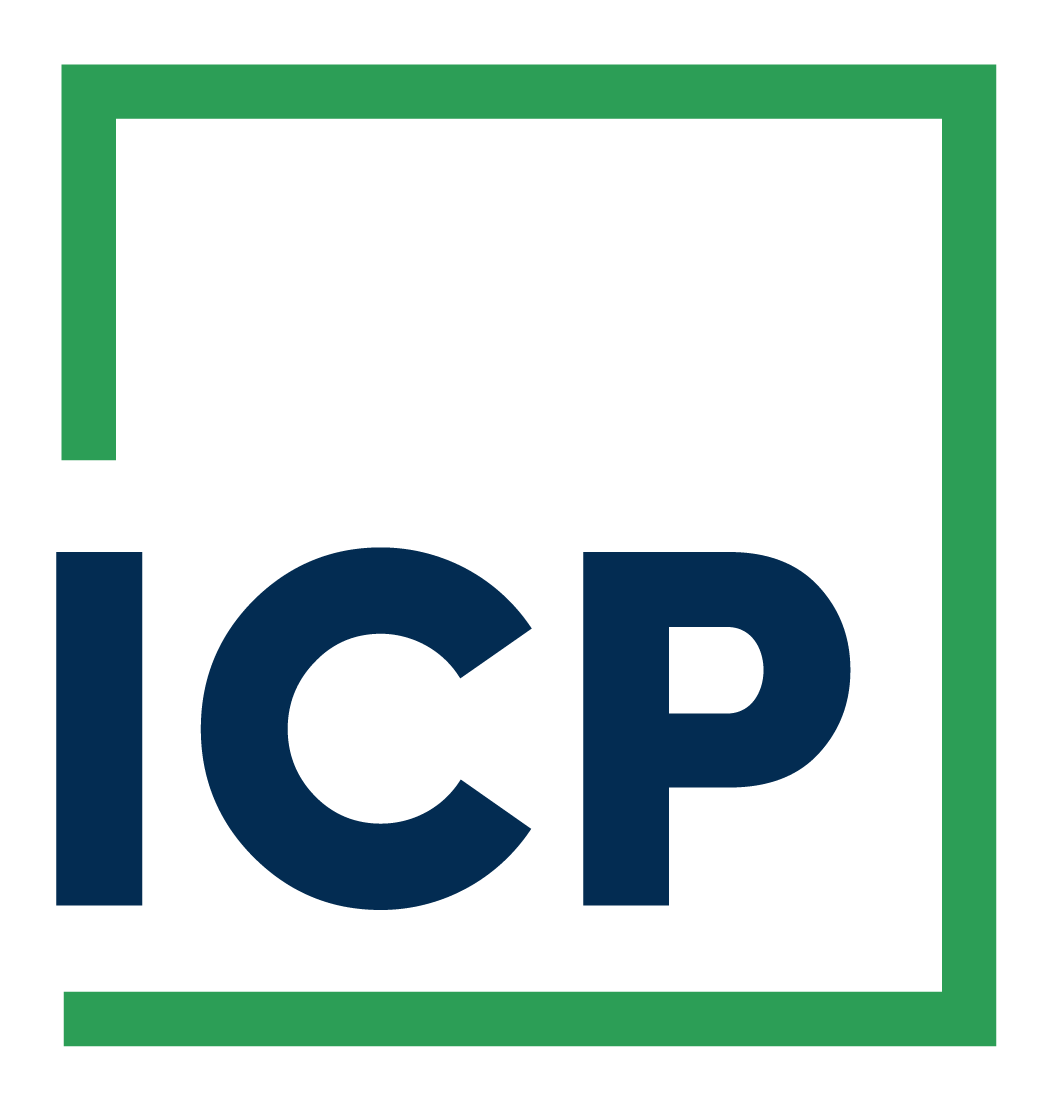Shockwave Concentrate: EPA registered and Tested to kill Human Coronavirus under the harshest conditions.

ICP’s Environmental Restoration Group supplies a disinfectant formulation proven effective against Coronavirus in real world situations – Fiberlock’s Shockwave concentrate. For a product to be EPA Registered as a disinfectant it must pass efficacy testing for each given virus or microorganism. This test includes exposing the subject strain to the disinfectant and the product must kill over 99.99% of the microorganism to pass. Often an organic soil load is added to create a more challenging test as organic material on the surface reduces the efficacy of a disinfectant. The industry standard is a 5% organic soil load which simulates slightly “dirty” conditions. ICP’s Shockwave was tested, and EPA registered, against the Human Coronavirus at much higher, more challenging, but real-world scenario 98% soil load.
Label is the Law
When faced with specific challenges, it is important to understand the liability potential and responsibility under the law to follow the precise instruction for use sites, applications, and microorganism kill claims, listed on the products’ packaging. Remember that a sanitizer doesn’t kill like a disinfectant; THEY ARE NOT THE SAME. Consider that the specific virus or microorganism must be EPA registered and listed on the product packaging. Also respect that without the EPA registered listing on the label the product cannot be used for that specific application, by law. Contractors and industry professionals must educate themselves to prevent liability from false claims or improper use based on the labeling.
Controlling the Virus is the Future
Coronavirus outbreaks can become widespread epidemics or even global pandemics. This virus can live on a surface for hours and possibly as long as a day, depending on temperature and humidity. But Coronavirus can be controlled. Although it’s labor intensive an outbreak can be contained with basic cleaning and disinfecting techniques. Special attention should be paid to common “hot spot” or high touch points like door handles, faucets, water fountain knobs, or even toys that are used by multiple children throughout the day.


